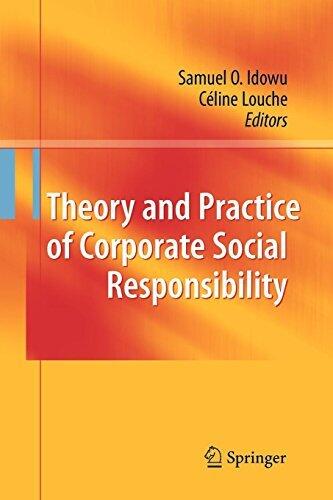
Theory and Practice of Corporate Social Responsibility
아직 평점이 없습니다
Business & Economics
형식
페이퍼백
페이지
316
언어
영어
출판됨
Jan 1, 2011
출판사
FisicalBook
판
2011
ISBN-10
3642164609
ISBN-13
9783642164606
설명
This insightful work delves into the intricate relationship between corporations and their social responsibilities, providing a comprehensive framework for understanding how businesses can operate ethically while also contributing positively to society. The authors, with their combined expertise, explore various dimensions of corporate social responsibility, illustrating its importance in today’s economic landscape.
Throughout the book, readers are guided through a series of theoretical underpinnings that underscore the significance of responsible corporate behavior. The narrative intertwines practical examples with academic analysis, offering a well-rounded perspective that appeals to both scholars and practitioners alike. Each chapter builds on the last, establishing a solid foundation for understanding how organizations can align their strategies with socially responsible practices.
As they navigate this complex terrain, the authors emphasize the moral imperatives that drive corporations to consider their broader impact. Readers gain valuable insights into practical applications of CSR, learning how businesses can forge meaningful connections with stakeholders while addressing pressing social issues.
In an era where consumers are increasingly prioritizing ethical considerations in their purchasing decisions, this work serves as a crucial resource for anyone interested in the evolving role of corporations in society. It is both a call to action and a guide, urging businesses to embrace their responsibilities while enriching community engagement and promoting sustainability.
Throughout the book, readers are guided through a series of theoretical underpinnings that underscore the significance of responsible corporate behavior. The narrative intertwines practical examples with academic analysis, offering a well-rounded perspective that appeals to both scholars and practitioners alike. Each chapter builds on the last, establishing a solid foundation for understanding how organizations can align their strategies with socially responsible practices.
As they navigate this complex terrain, the authors emphasize the moral imperatives that drive corporations to consider their broader impact. Readers gain valuable insights into practical applications of CSR, learning how businesses can forge meaningful connections with stakeholders while addressing pressing social issues.
In an era where consumers are increasingly prioritizing ethical considerations in their purchasing decisions, this work serves as a crucial resource for anyone interested in the evolving role of corporations in society. It is both a call to action and a guide, urging businesses to embrace their responsibilities while enriching community engagement and promoting sustainability.



















